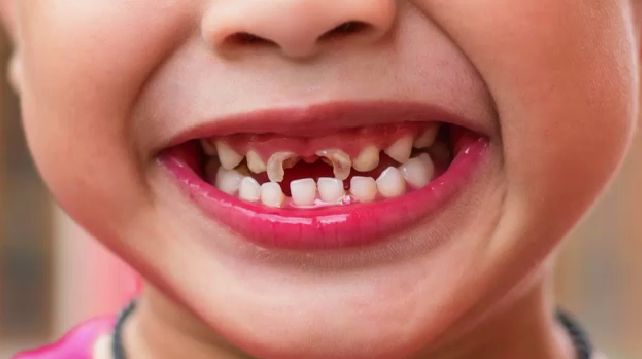As a parent, ensuring your child’s dental health is essential for their overall well-being. Cavities, also known as tooth decay, are one of the most common dental issues in children. They develop when bacteria in the mouth feed on sugars, producing acids that erode the tooth enamel. The good news is that cavities are largely preventable with the right habits. In this guide, we’ll explore effective ways to protect your child’s teeth and promote lifelong oral health.
Establishing a Proper Oral Hygiene Routine
One of the best ways to prevent cavities is by maintaining a strong oral hygiene routine from an early age.
- Brushing twice daily: Encourage your child to brush their teeth in the morning and before bedtime using fluoride toothpaste. Children under six should use only a pea-sized amount and should be supervised.
- Choosing the right toothbrush: Use a soft-bristled toothbrush suitable for your child’s age. Electric toothbrushes can also be effective in making brushing fun.
- Teaching proper technique: Show your child how to brush in gentle circular motions to clean all surfaces of their teeth.
- Flossing regularly: Once teeth begin to touch, introduce flossing to remove plaque and food particles between teeth.
Monitoring Your Child’s Diet
What your child eats has a significant impact on their dental health. A balanced diet can help strengthen teeth and prevent cavities.
- Limit sugary foods and drinks: Reduce your child’s intake of sweets, chocolates, sodas, and fruit juices, which contribute to tooth decay.
- Encourage water over sugary drinks: Water, especially fluoridated tap water, helps wash away food particles and neutralise acids.
- Provide calcium-rich foods: Dairy products like cheese and yogurt help strengthen enamel, while crunchy fruits and vegetables stimulate saliva production, which helps protect teeth.
Regular Dental Check-Ups and Professional Cleanings
Routine dental visits are crucial for preventing cavities and detecting any early signs of decay.
- Start early: The first dental visit should be scheduled by your child’s second birthday or earlier if needed.
- Visit the dentist regularly: Schedule check-ups every six months for professional cleaning and monitoring.
- Consider fluoride treatments and sealants: Your dentist may recommend fluoride applications or dental sealants for added protection against cavities.
Encouraging Healthy Habits at Home
Creating positive habits at home makes oral care more enjoyable for children.
- Make brushing fun: Turn toothbrushing into a game using songs, timers, or reward charts.
- Set a good example: Children often mimic their parents, so make sure they see you maintaining your own oral hygiene routine.
- Use educational tools: Books and videos about dental health can help children understand why brushing and flossing are important.
- Seek professional guidance: If you need expert advice on maintaining your child’s oral health, consider visiting a childrens dentist Lane Cove, who can provide tailored recommendations.
Limiting Cavity-Causing Habits
Certain habits can increase the risk of cavities, so it’s important to identify and reduce them early.
- Avoid frequent snacking: Grazing throughout the day, especially on sugary foods, exposes teeth to continuous acid attacks.
- Skip bedtime bottles with milk or juice: These liquids contain sugars that can cling to teeth overnight, increasing decay risk.
- Monitor pacifier use and thumb sucking: Prolonged habits can impact teeth alignment and oral development. If your child struggles to stop, your dentist can suggest strategies to help.
Understanding the Role of Fluoride
Fluoride is a vital mineral that strengthens enamel and helps prevent cavities.
- Use fluoride toothpaste: Ensure your child brushes with fluoride toothpaste suitable for their age.
- Drink fluoridated tap water: In many areas, tap water contains fluoride, which offers additional protection against tooth decay.
- Discuss fluoride treatments with your dentist: If your child is at high risk of cavities, your dentist may recommend fluoride applications to provide extra reinforcement.
Using Dental Sealants for Extra Protection
Dental sealants are a simple and effective way to prevent cavities in hard-to-reach areas.
- What are sealants? They are thin protective coatings applied to the chewing surfaces of molars and premolars.
- Who should get them? Children with deep grooves in their teeth benefit the most from sealants, as these areas are prone to trapping food and bacteria.
- Are they safe? Yes, sealants are safe and can last several years, providing an added layer of defense against cavities.
Parting Words
Preventing cavities in children requires a combination of good oral hygiene, a healthy diet, and regular dental care. By establishing the right habits early, you can help your child develop strong, healthy teeth that will last a lifetime. Start implementing these tips today and schedule a dental check-up to keep your child’s smile bright and cavity-free.

